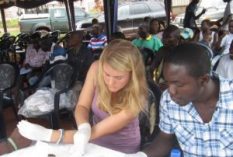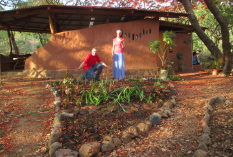International volunteering is an excellent way to gain valuable experience, develop cross-cultural communication skills, and make a positive impact on the world. Whether you are a student looking for an immersive learning experience, a professional seeking to enhance your skills, or simply someone who wants to give back, international volunteering can be an incredibly rewarding and transformative experience.
In this article, we will explore the benefits of international volunteering, including how it can boost your career and change your life. We will discuss the skills and experiences you can gain from volunteering abroad, as well as the positive impact you can make on local communities and the world.
Experience and Skill Development
One of the primary benefits of international volunteering is the opportunity to gain valuable experience and develop a wide range of skills. Whether you are teaching English in a rural village in Africa or building homes in Central America, international volunteering allows you to apply your knowledge and skills in new and challenging contexts.
For students, international volunteering can be an excellent way to gain hands-on experience in their field of study. For example, a nursing student might volunteer in a clinic in a developing country, gaining experience in patient care and public health. Similarly, an engineering student might work on a water sanitation project in a rural community, gaining experience in project management and problem-solving.
International volunteering can also be a great way to develop cross-cultural communication skills. Working with people from different backgrounds and cultures can help you become more adaptable and empathetic, and improve your ability to communicate effectively across cultural boundaries.
Positive Impact
International volunteering can also have a positive impact on local communities and the world. By working on sustainable development projects, supporting local organizations, or teaching valuable skills, international volunteers can make a real difference in the lives of others.
For example, volunteers might work on projects to improve access to clean water, promote literacy, or support local businesses. These projects can have a lasting impact on the communities they serve, helping to improve quality of life and promote economic development.
Volunteers can also learn about the challenges facing communities around the world and become advocates for positive change. By raising awareness about issues like poverty, environmental degradation, and social injustice, volunteers can help create a more just and equitable world.
Career Boost
In addition to the personal and social benefits of international volunteering, it can also be a great way to boost your career. Volunteering abroad can help you develop skills and experiences that are highly valued by employers, such as cross-cultural communication, adaptability, and problem-solving.
Volunteering abroad can also help you stand out in a crowded job market. Employers are increasingly looking for candidates with global experience and a commitment to social responsibility, and volunteering abroad can demonstrate both of these qualities.
In addition, volunteering abroad can be a great way to network and make valuable connections. By working with local organizations and other volunteers, you can build relationships that may be valuable throughout your career.
Tips for Getting Started
If you are interested in international volunteering, there are many programs and organizations that can help you get started. Here are some tips for finding the right program for you:
- Research: Do your research and find a program that aligns with your interests, skills, and goals. Look for programs that have a strong track record of success and that have positive reviews from former volunteers.
- Budget: Consider the costs associated with volunteering abroad, including program fees, travel expenses, and living costs. Make sure you have a realistic budget and a plan for financing your trip.
- Safety: Make sure you choose a program that prioritizes safety and has a clear plan for dealing with emergencies.
- Preparation: Before you depart, make sure you have all the necessary documentation such as your TEFL accreditation and vaccinations, and that you have a clear understanding of what to expect.
- Follow-Up: After your volunteer experience, make sure to follow up











